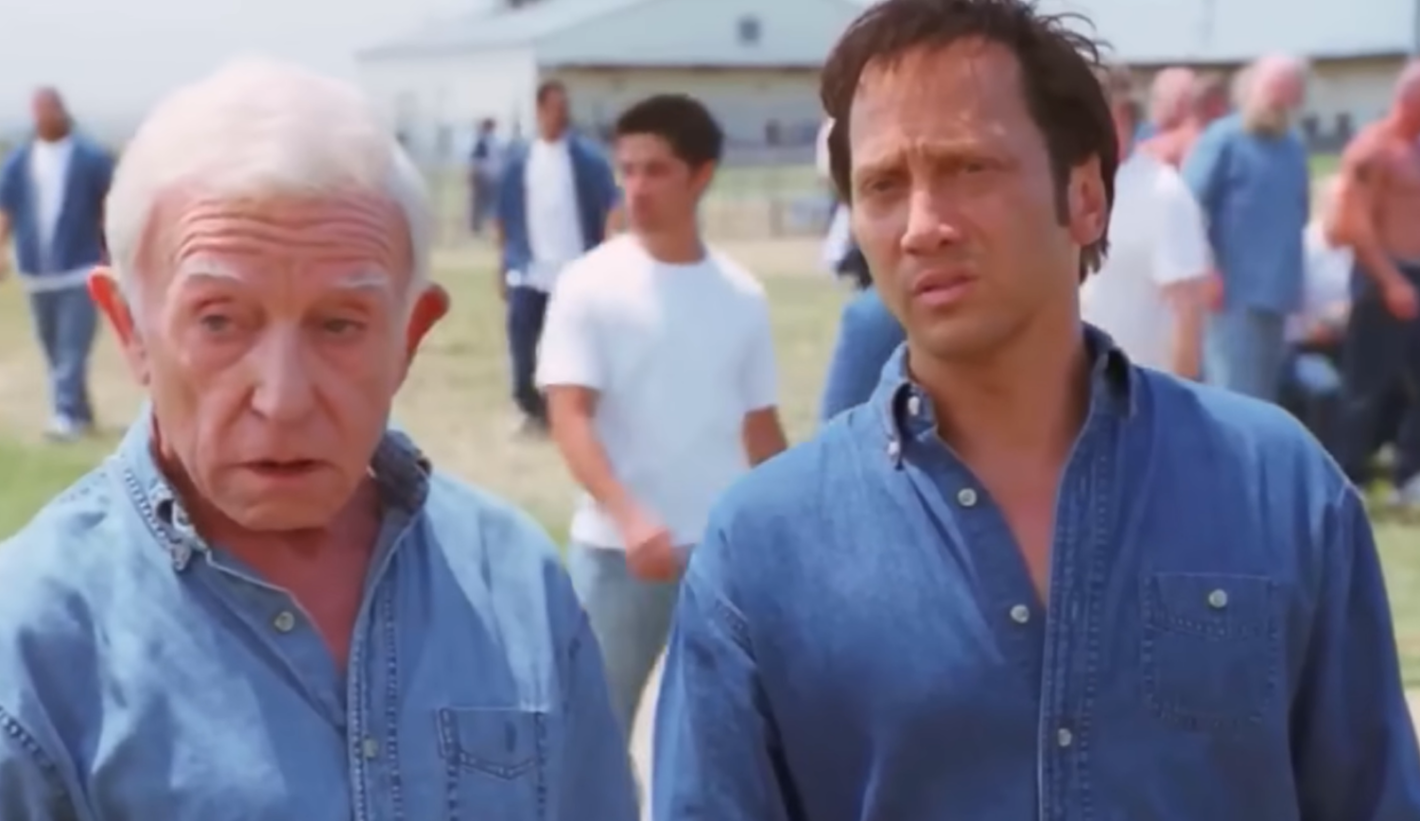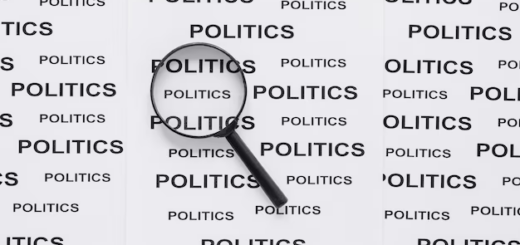Exploring Rob Schneider’s Political Mindset

Rob Schneider, a well-known comedian, actor, and former “Saturday Night Live” cast member, has not shied away from expressing his political opinions in public. Famous for his quirky humor and roles in numerous comedic films, Schneider has also made headlines for his conservative political views. While his transition from entertainment to political discourse has been met with both support and criticism, it’s essential to delve into the details to gain a comprehensive understanding of his perspective.
The Political Spectrum: A Conservative Stance
Rob Schneider’s public persona has frequently been linked with conservative political beliefs, positioning him squarely on the right end of the political spectrum. Beyond his comedic roles, Schneider has emerged as a vocal advocate of values that align with conservative principles. These principles encompass a preference for smaller government, a heightened emphasis on individual freedom, and a strong aversion to extensive government intervention in the lives of citizens.
In his discussions on political matters, Schneider has expressed a genuine concern about the potential consequences of an expanding government apparatus. He has voiced reservations regarding the accumulation of government powers, fearing that unchecked authority could encroach upon the liberties of individuals and erode the foundations of a free society. This perspective has led Schneider to advocate for maintaining limits on the reach of government into various aspects of people’s lives.
Central to Schneider’s conservative stance is his unwavering belief in personal responsibility. He underscores the importance of individuals taking charge of their own actions and decisions, viewing this as a fundamental pillar of a thriving society. In his view, a society that fosters self-reliance and accountability not only empowers its citizens but also paves the way for genuine progress.
Schneider’s conservative viewpoint, which champions limited government involvement, personal freedom, and individual accountability, positions him as a distinct voice in the realm of entertainment. As he steps beyond the confines of the comedic stage and into political discourse, his advocacy for these principles underscores his dedication to upholding the core values he believes are essential for a prosperous and balanced society.
Healthcare and Government Intervention
Central to Rob Schneider’s political outlook is his perspective on healthcare, a topic of ongoing debate and significance. Schneider’s views on this issue reflect his broader stance on the role of government in citizens’ lives and their freedom to make critical decisions for themselves.
- Critique of Government-Controlled Healthcare: Schneider has expressed reservations about the concept of government-controlled healthcare systems. He views such systems as potentially restrictive and prone to inefficiencies that could impact the quality and accessibility of medical services;
- Advocacy for Free-Market Solutions: In contrast to government intervention, Schneider leans toward advocating for free-market solutions in the healthcare sector. He believes that competition among healthcare providers can lead to innovation, improved services, and lower costs for patients;
- Emphasis on Individual Choice: Schneider places a strong emphasis on the importance of individual choice in healthcare decisions. He believes that individuals should have the autonomy to select their preferred medical treatments and insurance options without undue government interference;
- Concerns about Government Inefficiencies: Schneider’s concerns about government involvement in healthcare revolve around potential inefficiencies. He worries that bureaucratic processes and red tape might hinder the efficiency and responsiveness of healthcare services, potentially leading to longer wait times and subpar care;
- Balancing Accessibility and Quality: While Schneider advocates for free-market solutions, he acknowledges the need to strike a balance between healthcare accessibility and maintaining high-quality medical services. He envisions a system where competition fosters both accessible care and medical excellence;
- Catalyst for Debate: Schneider’s stance on healthcare has made him a participant in the broader discourse about the best approach to providing healthcare services to citizens. His views contribute to the ongoing discussions about the role of government in healthcare and the merits of market-driven systems.

In essence, Schneider’s perspectives on healthcare underscore his belief in individual agency, competition, and minimal government interference. While his viewpoints align with a conservative stance on limited government intervention, they also contribute to the multifaceted dialogue surrounding healthcare reform and the ways societies can ensure the well-being of their citizens.
Second Amendment and Gun Control
Rob Schneider’s advocacy extends to the realm of gun rights and the Second Amendment. He strongly emphasizes the significance of the right to bear arms as a crucial element of self-defense and a safeguard against potential governmental overreach. Schneider firmly contends that an armed citizenry plays a role in deterring tyranny and preserving the democratic principles upon which the nation was founded.
Within the ongoing debates surrounding gun control, Schneider has consistently voiced his opposition to stringent measures that could limit citizens’ access to firearms. He believes in the importance of responsible gun ownership and has been vocal about the need for individuals to exercise their rights while upholding safety and adherence to the law. His stance asserts that law-abiding citizens should not be unduly burdened in their pursuit of firearms ownership.
Rob Schneider’s dedication to political discourse extends to his strong advocacy for gun rights and a resolute stance on the Second Amendment of the United States Constitution. His perspectives on this matter highlight the intersections between personal liberties, self-defense, and the broader societal implications of gun control measures.
- Defending the Right to Bear Arms: Schneider’s advocacy centers around the fundamental right to bear arms enshrined in the Second Amendment. He staunchly believes that this right is essential not only for individual self-defense but also as a means to prevent potential abuses of governmental power;
- Safeguarding Against Tyranny: Schneider emphasizes the historical context in which the Second Amendment was established, citing its role in safeguarding citizens against potential tyranny. He contends that an armed populace serves as a deterrent against any encroachments on democratic principles and individual freedoms;
- The Role of an Armed Citizenry: Schneider asserts that an armed citizenry serves as a bulwark against the concentration of power. He believes that the ability of citizens to defend themselves can contribute to a more balanced power dynamic between the government and the people;
- Opposition to Stringent Gun Control Measures: Within the ongoing debates on gun control, Schneider consistently opposes stringent measures that could limit citizens’ access to firearms. He maintains that responsible gun ownership by law-abiding citizens should not be unduly restricted by overreaching regulations;
- Balancing Rights and Safety: Schneider acknowledges the importance of striking a balance between preserving citizens’ Second Amendment rights and ensuring public safety. He advocates for responsible gun ownership practices that include proper training, background checks, and adherence to existing laws;
- Voicing Concerns for Law-Abiding Citizens: Schneider’s stance underscores his concern for law-abiding citizens who seek to exercise their constitutional right to own firearms. He believes that responsible individuals should not face unnecessary obstacles in obtaining and owning guns;
- Amid Ongoing Debates: Schneider’s advocacy for gun rights places him in the midst of the broader discussions on gun control policy. His views contribute to the nuanced discourse about individual freedoms, public safety, and the government’s role in regulating firearms.
Controversies and Backlash
While Rob Schneider’s foray into political discourse has earned him supporters who align with his views, it has not been without its share of controversies and criticism. Schneider’s public statements on topics such as vaccinations and climate change have ignited intense discussions and prompted accusations of disseminating misinformation.
Particularly concerning vaccines, Schneider’s skepticism about their safety and efficacy has raised concerns within the medical community and beyond. Critics argue that such skepticism may undermine efforts to combat infectious diseases and protect public health. Schneider’s reservations stand in contrast to the prevailing scientific consensus that underscores the importance of vaccines in preventing the spread of illnesses.
Similarly, his views on climate change have faced backlash, with some asserting that his perspective might downplay the urgency of environmental concerns. The controversies surrounding Schneider’s positions on these issues highlight the complex intersections of celebrity influence, public discourse, and the responsibilities that come with using one’s platform to address political and societal matters.
The Intersection of Comedy and Politics

Rob Schneider’s notable shift from a career primarily focused on comedy to a more politically engaged persona has sparked intriguing discussions about the role that entertainers play in the realm of political discourse. This transition has prompted both admiration and skepticism, with observers pondering the legitimacy of a comedian’s perspectives on complex political issues.
Critics of Schneider’s involvement in political discussions contend that his background as a comedian might not inherently qualify him as an expert in intricate political matters. They argue that his comedic skills, while undoubtedly impressive, may not necessarily translate into a deep understanding of the intricacies of policy, governance, or international relations.
However, Schneider’s decision to delve into political conversations aligns with a larger trend among celebrities who use their fame to advocate for their beliefs. He, like many others, recognizes the inherent power in his platform—a platform that reaches millions due to his celebrity status. By expressing his political views, Schneider aims to leverage his visibility to drive discussions on critical topics, thereby influencing public opinion and encouraging civic engagement.
In a world where social media and entertainment intersect, celebrities often find themselves at the nexus of political conversations. Schneider’s journey exemplifies the evolving landscape of public discourse, where artists and entertainers increasingly step into the political arena. While questions about expertise persist, Schneider’s ability to channel his fame into raising awareness about his chosen causes highlights the profound impact that celebrities can wield in shaping public perspectives.
Conclusion
Rob Schneider’s political views offer a glimpse into the ideological diversity within the entertainment industry. While his conservative stances on topics like healthcare, gun control, and government intervention align with a specific subset of political thought, they have also ignited debates and controversies. As society continues to navigate the interplay between celebrity influence and political dialogue, Schneider’s case serves as a reminder that public figures, regardless of their background, can wield a significant impact in shaping public opinion.


